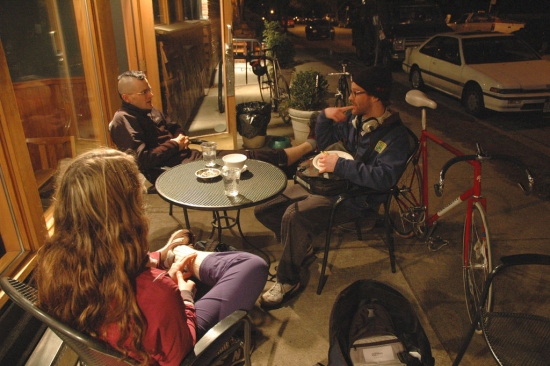The recession took a great toll on the UK, with everything from leisure properties to the retail industry struggling to bring in enough revenues to keep afloat. However, even though the economy has stabilised consumers remain wary of spending on non-essentials and remain determined to keep costs down even when indulging in luxuries.

Yet there appears to be one exception to this rule, and it comes in the form of the coffee bean. The average Briton will visit a coffee shop at least once in the working month, with the daily lunchtime trip to Starbucks or Costa for a sandwich and hot beverage becoming a routine for millions of people nationwide.
As a result, the number of coffee shops on the high streets of the UK has skyrocketed in recent years with the big three of the coffee retailing industry, Costa, Starbucks and Café Nero, now operating almost three thousand stores among them. Furthermore, this number is due to increase in the near future as all three have aggressive nationwide expansion plans in place.
Last year alone, the British coffee market grew by a staggering 7.5 per cent taking its value up to £5.8 billion. This is particularly noteworthy firstly because of the average rate of growth in the retail and leisure industries, and secondly because only 750 branded coffee stores existed in the UK as recently as 1999.
The decline of the high street has allowed coffee chains and independent retailers to take advantage of empty commercial properties by establishing themselves as the new staples of many town centres. Tesco owned Harris + Hoole is just one chain expected to centre their expansion plans and marketing strategy around the plight of the high street, for instance.
However, while the rise of the café culture may be a good thing for coffee chains and caffeinated consumers alike, it appears to have had a detrimental effect upon the traditional British pub. Thanks to workers switching a swift half pint at lunch for a grande latte at their desks, and catching up with friends over coffee rather than visiting their local after work, coffee shops have somewhat stolen the limelight from the traditional pillar of the community.
In 1988 there existed around 69,000 pubs in the UK, but this figure has dropped to less than 49,500 in the present day. And with the latest figures showing that an average of 18 pubs close every week across the country this decline is expected to continue.
Of course, coffee shops cannot shoulder all of the blame for the drop in the pub industry, as many consumers choose to save cash by buying in alcohol from the supermarket rather than popping out for a pint. But with some coffee chains revealing their intention to eventually serve both coffee and alcohol, in order to appeal to the evening crowd, they could certainly contribute to the increase in closures in the not too distant future.
Allegra Strategies director, Jeffrey Young, believes that coffee shops could soon draw level with pubs in terms of the number found in the UK – certainly, with coffee chains growing and a higher number of pubs closing this is looking more and more likely every week.
He says; “While there is still a gap between the number of pubs and coffee shops, it is genuinely possible that there could one day be the same number of each.
“And high streets and shopping centres can contain many coffee shops, whereas they are likely to have just one pub, if that.”
Furthermore, he believes that an increase in the number of coffee shops is a good thing and could lead to a more Continental drinking culture rather than the binge drinking nation Britain is assumed to be.
He continues; “There are artisan coffee shops coming along now which are beautiful and serve alcohol to capture the evening trade as well.
“Coffee shops tend to be a very quiet, civilised environment and people tend to be responsible in a way that they aren’t with alcohol.”
However, if the coffee shops begin selling alcohol it stands to reason that the pub industry will move in on their market as well. Many pubs have spent a small fortune installing state of the art coffee machines, while earlier opening hours have also been implemented in many to capture the daytime coffee trade.
In fact, pubs are now believed to sell around 3.6 million cups of coffee a week, especially since larger coffee chains have now begun to invest in the pub industry. Costa, for example, has signed a deal with the Spirit Pub Company, while Italian specialists Lavazza now have their products on offer in Wetherspoons.
Neil Williams of the British Beer and Pub Association believes that pubs are still viable competitors to coffee shops, but that landlords should have more support from the Government.
He says; “There is no doubt that times are still tough for pubs, which is why the Government must rethink its crippling increases in the tax on beer, which has gone up by 42 per cent since March 2008.
“However, we have thousands of great pubs and they are fighting back.
“If the coffee is great in the pub, coffee shop chains will find it hard to match the traditional and laid-back atmosphere.”
Would you rather visit a coffee shop or your local pub for a catch up with friends after work? Is the decline of pubs largely to do with the economic situation, or does it reflect a wider cultural change?
Previous Post
Birmingham City Council Considers Property Sale